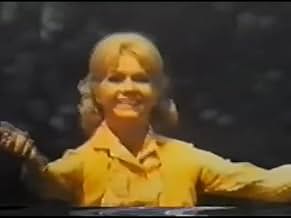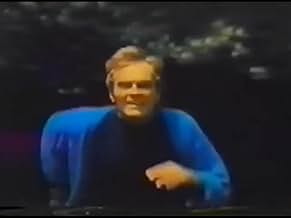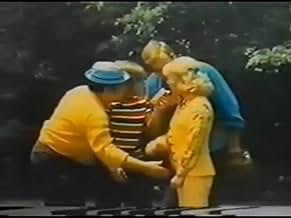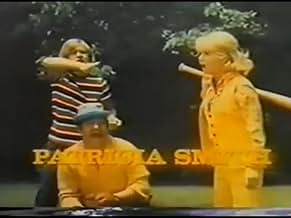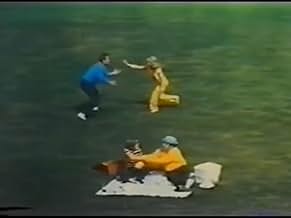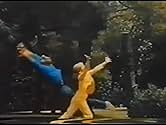Füge eine Handlung in deiner Sprache hinzuDebbie Thompson was an ordinary homemaker who wanted desperately to become a newspaper reporter. Her husband Jim was a well-known sportswriter for the Los Angeles Sun, and Debbie's schemes a... Alles lesenDebbie Thompson was an ordinary homemaker who wanted desperately to become a newspaper reporter. Her husband Jim was a well-known sportswriter for the Los Angeles Sun, and Debbie's schemes and plans to build her own career constantly put him on the spot. The resemblance to "I Lov... Alles lesenDebbie Thompson was an ordinary homemaker who wanted desperately to become a newspaper reporter. Her husband Jim was a well-known sportswriter for the Los Angeles Sun, and Debbie's schemes and plans to build her own career constantly put him on the spot. The resemblance to "I Love Lucy" isn't coincidental, since this show was produced by "Lucy" writer Jess Oppenheimer... Alles lesen
- Auszeichnungen
- 1 Nominierung insgesamt
Empfohlene Bewertungen
For instance, the "Debbie Reynolds Show" episode mentioned earlier regarding the marriage license as being derivative of "I Love Lucy" and "The Dick Van Dyke Show", were themselves both derivative of the Alfred Hitchcock screwball comedy "Mr. and Mrs. Smith".
The choice of music for her "comeback" episode, also mentioned earlier, is a more subtle connection, in that it relates to Reynolds own career. Reynold's first starring role was in "Singing In The Rain" which included the Herb Nacio Brown song "Make 'Em Laugh", a number which is a fairly blatant plagiarism of Cole Porter's "Be A Clown".
Debbie Reynolds must take some of the blame for 'The Debbie Reynolds Show'. She supervised the (very derivative) scripts, and she personally approved all the sponsors' commercials! In 1969, it was still legal to advertise cigarettes on Yank TV: the R.J. Reynolds company wanted to advertise their cigarettes on the Debbie Reynolds show: Ms Reynolds personally turned them down ... but then, learning that the same corporation also made Mott's Apple Juice, she permitted them to air a Mott's spot instead.
'The Debbie Reynolds Show' is usually derided as a rip-off of 'I Love Lucy'. Reynolds is a much more talented performer than Lucille Ball ever was, yet this charge is accurate. Whereas the untalented Lucy Ricardo (played by the equally untalented Lucille Ball) was always pestering her conga-drummer husband to help her get into show business, here we had Debbie Reynolds as a former entertainer (named Debbie, of course) who gave up her glamorous showbiz career to get married, and now she's pestering her sportswriter husband to help her get a career in journalism. This premise lost something in its translation from 'I Love Lucy' to here. Success in showbiz is largely a matter of contacts, so it made sense for Lucy Ricardo to exploit her husband's connections. Success in journalism has more to do with hard work and the ability to meet a deadline: Debbie should have been pestering editors and publishers, instead of nagging her husband. Her sitcom husband is played here by Don Chastain, a tall actor with impossibly handsome features, a chiselled jaw and no discernible acting talent.
The 'Ethel Mertz' character here is Debbie's (fictional) sister. Tom Bosley is wasted in the 'Fred Mertz' role, given no ability to use his great talents in this thinly-written role. Their on screen son (Debbie's nephew) is played by a blond child actor of some genuine acting ability. The lacklustre direction is by Ezra Stone, who began his sitcom career as a child performer playing Henry Aldrich.
Even the scripts on this show were horribly derivative. One episode used a premise previously done by 'I Love Lucy' AND by 'The Dick Van Dyke Show': Debbie and her husband discover that, due to a legal technicality, their marriage was never legal. Until they can remarry, Debbie insists they should sleep in separate rooms. Her husband doesn't want to give up the bedroom, so they agree to flip a coin to see who has to sleep on the couch. Debbie tosses the coin, but 'accidentally' tosses it over her shoulder. When her husband bends down to see how the coin landed, Debbie lifts her foot to push him out of the bedroom and slam the door shut behind him.
Another episode featured an exact reversal of Lucy Ricardo's usual routine, with everybody else urging Debbie to get back into showbiz while she modestly refuses. A local charity are producing a benefit; Debbie's husband and her sister and her brother-in-law all urge Debbie to perform in the benefit, but she keeps insisting that her showbiz days are behind her. At the end of the episode (big surprise!) she changes her mind and performs a big musical number. Wearing clown make-up and costumes, Debbie and two men perform Cole Porter's 'Be a Clown'. One of the male clowns does a very stupid 'magic trick' in which he spits a dozen light bulbs out of his mouth, one at a time. This trick *would* be very impressive, except that we're obviously watching a looped film clip of this guy spitting out the same light bulb, over and over and over.
I'll rate 'The Debbie Reynolds Show' 3 points out of 10, and that's solely for my tremendous admiration of Debbie Reynolds as a performer. This sitcom was a very dim showcase for her considerable talents.
However much it was derivative of I LOVE LUCY, Reynolds was very funny. Too bad that Monty Python and the Brits didn't get it. As for the previous comment that Lucille Ball was not talented, I simply don't know what to say except that the "untalented Miss Ball" starred in the best and longest running sitcom in the history of the world.
The androgyny required by female comics was balanced precariously by Lucille Ball and Desi Arnaz in their sitcom. Jess Oppenheimer apparently did not understand the need for a sexual undertone when casting Reynolds, who lacked the gentile sexuality of Lucille Ball -- though could surpass her as a flat out clown in most instances. Ball had the feminine need of her husband and it came across on screen. Reynolds' character had no time for that.
CBS at that time was attempting to make Doris Day into their new Lucille Ball in THE DORIS DAY SHOW and she had the opposite problem of Reynolds -- a lot of girl next door female allure, but not enough androgynous clownishness.
In any event, for anyone in the UK to dismiss The Debbie Reynolds Show as imitative fluff either didn't see the original show in its original airings and/or didn't understand its American context of suburban spoof. Lucille Ball herself said that she took some umbrage at the TV show LAVERNE AND SHIRLEY (interestingly it was a comedic period piece set in the 50's -- the moral innocence required for a sitcom like that to thrive was oppressed by the swinging sixties, one supposes) for ripping off her Ethel/Lucy antics.
Even though THE DEBBIE REYNOLDS SHOW hit the screen during the middle of London's mod "Austin Powers" era, there were enough workaday types in the US, like my suburbanite family -- who remember the Reynolds show as very very funny. She and the actress who played her sister were hysterical and I was only in third grade but still recall it fondly. Reynolds, unlike Lucy Ball, didn't want Phillip Morris ciggie advertising, and she pulled the plug. I'd love to see it on DVD.
Wusstest du schon
- WissenswertesNBC canceled the series after one season because Reynolds made such a fuss over forcing the network to honor their contractual obligation not to air cigarette ads during her show. Ironically, on January 2, 1971, less than a year later, a federal law went into effect banning all cigarette advertising on television.
Top-Auswahl
- How many seasons does The Debbie Reynolds Show have?Powered by Alexa
Details
Zu dieser Seite beitragen


